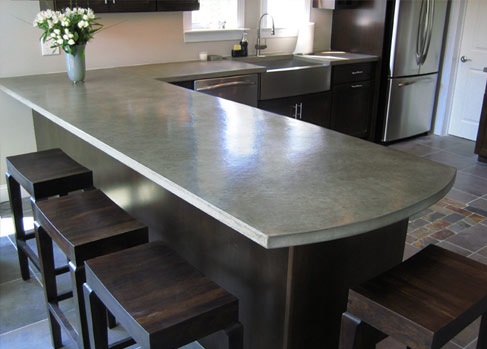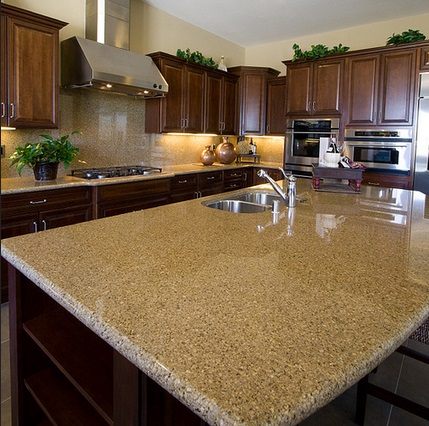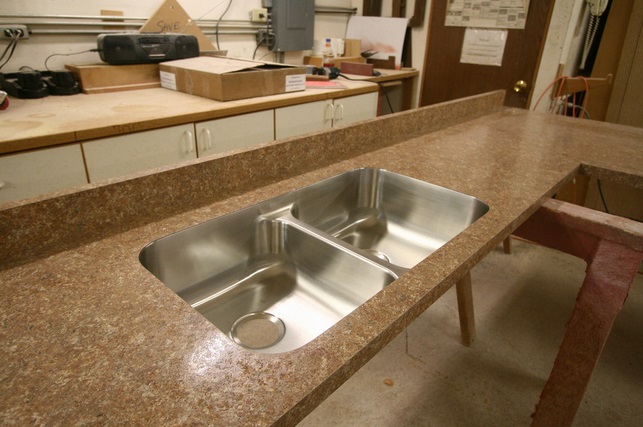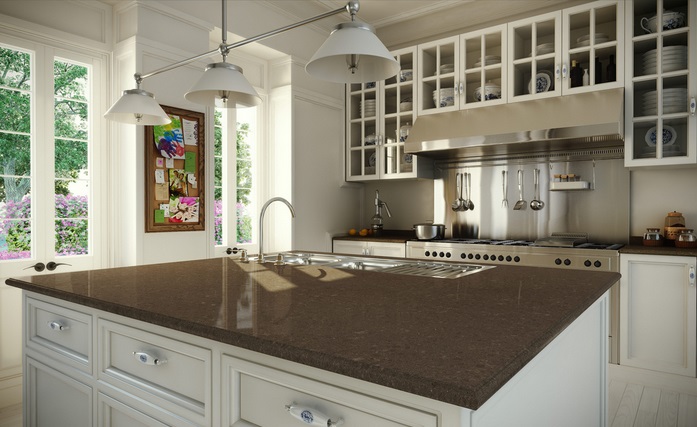Kitchen Countertops material with pros and cons for each so that you can decide yourself which option suits you best.
Various materials
Marble- It is widely known in terms of its shine. It is a natural stone and is very similar to granite in style and material. It creates an elegant and sophisticated feeling, regardless of whether it has a polished or sharp finish. It is a traditional choice for pastry and baking stations.

- Pros: It comes in a variety of colors and patterns.
- It is highly resistant to heat, cracks and breakage.
- It has smooth surface and it won’t chip or dent easily.
- Cons: It can be very expensive.
- It can be scratched by acids, citrus, coffee, alcohol or some cleaning products even if you seal it.
- It is porous so cook with care.

- Pros: It stands up well to heat, splashes and other causes of wear and tear.
- It comes in a natural variety of colors, textiles and finishes.
- It is resistant to cracks and chips.
- It does not require a very high level of maintenance.
- It is outstanding for baking preparations.
- Cons: It can also be quite expensive.
- It requires a resealing about once a year.
- You will need very well- built cabinets to support the weight.

- Pros- It is one of the most affordable countertop materials.
- It is easy to clean and requires less maintenance.
- It is lightweight, therefore does not require support of a thick cabinet base.
- It comes in a variety of colors, patterns and textiles.
- Cons- Heat and sharp knives can damage it and this cannot be repaired.
- The layers can peel with wear and moisture exposure.
- It is also difficult to repair if it gets damaged.
- You can’t use laminate with under-mount sinks.

- Pros- It comes in a variety of patterns and colors than natural stones.
- It is environmentally friendly and naturally antibacterial.
- No maintenance is required.
- It is resistant to damage and stains.
- Seams are less visible.
- Cons- This does not have natural variegation of granite, so it may be evident that it is an engineered product.
- Compared to other materials it is costly.
- Pros- Since it is non- porous, it is maintenance free.
- No sealing or special cleaning is required.
- They are resistant to stains, mildew and bacteria.
- Installation is seamless with no cracks to trap any dirt or debris.
- They offer the option of an integral sink and backsplash.
- They are durable and their surface is smooth.
- Cons- Does not stand up to hot pan or sharp knives as well as other materials.
- Dark colors of this material will show more fingerprints.
- They are easy to scratch and dent.
- They can get stains.
- Pros- They have a warm and natural feel.
- They require low maintenance as just periodic oiling is recommended.
- They can be cleaned with soap and water.
- Scratches or stains can easily be sanded.
- They are useful for people who cook a lot, since the surface can be used for cutting without dulling or damaging knives.
- Cons- Wood will swell and contract with moisture.
- Harbors bacteria and needs frequent disinfecting.
- They can easily damaged by burns, dents, spills and scratches.
- They will discolor if installed around the sink.




